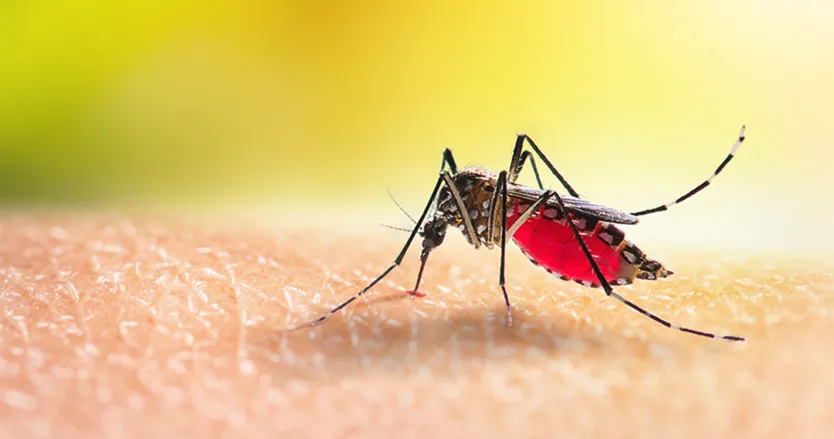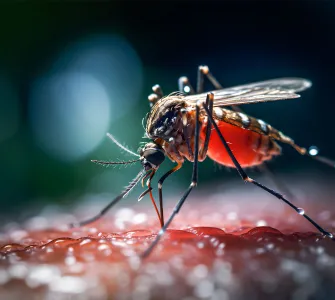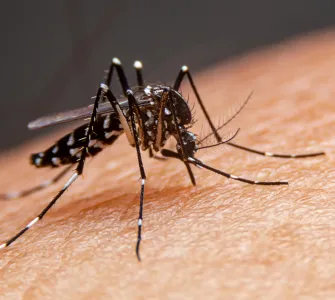Dengue: What factors make you vulnerable?


The threat of dengue needs to be taken seriously
Dengue is the world’s most common and fastest spreading mosquito-transmitted infection.1,2 The last 50 or so years alone have seen a 30-fold rise in the incidence of dengue.3 It is often a leading cause of illness in areas with risk.4
“Each year, an estimated 400 million people are infected with dengue virus, 100 million become ill with dengue, and 21,000 deaths are attributed to dengue.”
– Centers for Disease Control and Prevention.5
Although many infections are mild and or result in no symptoms, dengue can be really dangerous for some people.6 Infections can have severe complications, such as shock and organ damage, which can lead to hospitalization and even death in some cases.6-8
Unfortunately, it is not a level playing field when it comes to dengue, some people are at greater risk of developing severe complications and outcomes than others.7,9,10
Read on to find out if you may be at greater risk and if so, what you can do to help keep yourself safe from this potentially life-threatening disease...6
Upping the stakes: Certain pre-existing conditions can increase the risk of dengue severity
Some pre-existing conditions can increase the risk of severity of dengue.7,9-10 These pre-existing conditions are also known as comorbidities if the person has the condition at the same time as they also have another disease (such as a dengue infection). Certain comorbidities can compromise the immune system as well as the lining of the blood vessels.7,10-12 Scientists think this could be partly behind why comorbidities can lead to poorer outcomes in dengue – although the exact reasons are still being researched.7,10-12 So, what are these pre-existing conditions and how might they worsen dengue in some people?
Some of the main culprits
Diabetes | Heart/blood circulation disorders |
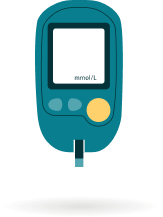 |  |
|
|
Lung conditions | Kidney conditions |
 | 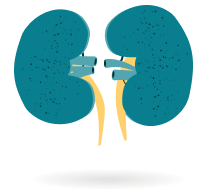 |
|
|
Obesity or Overweight |
|
 |
|
|
|
There may be other comorbidities besides the ones mentioned here, as this is an area scientists continue to research. Please contact your physician if you have any concerns about your own risk.
Adding up the risks: more comorbidities can mean more problems
Unfortunately, for those with more than one comorbidity, the risk may add up when it comes to dengue.7 This means that the combined effect of multiple comorbidities increases the risk of dengue further than compared to a single pre-existing comorbidity.7 For example, study in Singapore found that patients were more at risk to experience severe organ impairment as a result of dengue if they had both diabetes and hypertension than compared to if they just had one of these comorbidities alone.7
A higher risk in the elderly
Old age can increase the risk of severe dengue and death.7,10 Research has shown that people over 60 years had about a three times higher risk for severe organ impairment than those aged 12–29 years old.7 The risk associated with age may partly be down to the gradual decline of the immune system function that occurs naturally with advancing years.7 Unfortunately, being elderly is linked with a higher chance of having a number of chronic conditions16 – many of which can increase the risk of poor dengue outcomes in their own right.10
Stacking the odds against dengue in your favor
References
Yang X, et al. J Travel Med. 2021;28(8):taab146.
Bouri N, et al. Public Health Rep. 2012;127(3):259-66.
World Health Organization. Available at: https://www.who.int/news-room/questions-and-answers/item/dengue-and-severe-dengue Accessed December 2023.
Centers for Disease Control and Prevention. Available at: https://www.cdc.gov/dengue/areas-with-risk. Accessed December 2023.
Centers for Disease Control and Prevention. https://www.cdc.gov/dengue/training/cme/ccm/page51440.html. Accessed December 2023.
World Health Organization. Available at: https://www.who.int/news-room/fact-sheets/detail/dengue-and-severe-dengue Accessed December 2023.
Pang J, et al. Sci Rep. 2017;7:39872.
Calderón-Peláez MA et al. Front Microbiol. 2019;10:1435.
Sangkaew S, et al. Lancet Infect Dis. 2021;21(7):1014-1026.
Fonseca-Portilla R, et al. Int J Infect Dis. 2021;110:332-336.11.
Ng WY, et al. PLoS One. 2022;17(9):e0273071.
Chen CY, et al. BMC Infect Dis. 2023;23(1):502.
Werneck GL, et al. Mem Inst Oswaldo Cruz. 2018;113(8):e180082.
Lien CE, et al. Am J Trop Med Hyg. 2021;105(6):1544-1551.
Tan VPK, et al. PLoS One. 2018;13(7):e0200698.
Divo MJ, et al. Eur Respir J. 2014;44(4):1055-68.
Herman J, et al. 2018;46(1):59-65.
Are you visiting a dengue endemic region as an elderly traveler or with a pre-existing medical condition? Take vital steps ahead of time…
Advanced age and/or certain long-term medical conditions can increase a traveler’s risk of complications (including death) from dengue if they catch it.7,9-10 Such travelers can be at risk from the adverse impacts of dengue – both during their travels (where they can originally be infected) and after they return (at which point they still may be experiencing symptoms of dengue).17
This means there are a few extra steps you may want to take before going abroad to areas at risk of dengue. Fortunately, careful planning can help you minimize the threat of dengue abroad. Here’s what you need to know…
Preparation is key: Check in with your doctor
Arranging a health check-up before you travel can help the doctor see how well-controlled your comorbidity is.17 If you take medication for your condition, you should plan ahead to make sure you take an adequate supply with you. It can be helpful to take a list of your medications with you, this is something your doctor can help with.17 Your doctor can also advise you on your individual risk of dengue when visiting the destination.17
Aside from seeing your doctor, another important thing to do before you fly is to enquire about a comprehensive insurance plan which covers your underlying condition(s).17
Things to consider about your destination
It is a good idea to check, ahead of travel, if and where your medication will be available at your destination.17 Consider too, how well-set up the local hospitals or health centers are for treatment of your condition. For instance, if they are likely to have the right equipment needed for treatment.17 One of the most important things you can do when you arrive at your destination is to make sure you take all the measures you can to avoid being bitten by mosquitoes in the first place.6
Make your holiday memorable the right reasons
References
Yang X, et al. J Travel Med. 2021;28(8):taab146.
Bouri N, et al. Public Health Rep. 2012;127(3):259-66.
World Health Organization. Available at: https://www.who.int/news-room/questions-and-answers/item/dengue-and-severe-dengue Accessed December 2023.
Centers for Disease Control and Prevention. Available at: https://www.cdc.gov/dengue/areas-with-risk. Accessed December 2023.
Centers for Disease Control and Prevention. https://www.cdc.gov/dengue/training/cme/ccm/page51440.html. Accessed December 2023.
World Health Organization. Available at: https://www.who.int/news-room/fact-sheets/detail/dengue-and-severe-dengue Accessed December 2023.
Pang J, et al. Sci Rep. 2017;7:39872.
Calderón-Peláez MA et al. Front Microbiol. 2019;10:1435.
Sangkaew S, et al. Lancet Infect Dis. 2021;21(7):1014-1026.
Centers for Disease Control and Prevention. Available at: https://www.cdc.gov/dengue/is-it-dengue-or-covid.html. Accessed December 2023.
Fonseca-Portilla R, et al. Int J Infect Dis. 2021;110:332-336.11.
Ng WY, et al. PLoS One. 2022;17(9):e0273071.
Chen CY, et al. BMC Infect Dis. 2023;23(1):502.
Werneck GL, et al. Mem Inst Oswaldo Cruz. 2018;113(8):e180082.
Lien CE, et al. Am J Trop Med Hyg. 2021;105(6):1544-1551.
Tan VPK, et al. PLoS One. 2018;13(7):e0200698.
Divo MJ, et al. Eur Respir J. 2014;44(4):1055-68.
Herman J, et al. 2018;46(1):59-65.


















